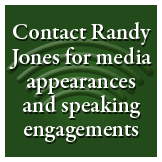Randy Jones | May 9, 2009
I have long thought that Jesse Kornbluth is one of the finest writers in America. He has a sharp wit, an incisive understanding of the culture and despite his occasional playful grumpiness is a kind writer, too. Vanity Fair hasn’t been the same without his powerful pen. And to my great delight, the great writer had some nice things to say about The Richest Man in Town, and a few very funny things, too. In his review, Kornbluth poses this question:
Have you noticed that almost no one ever seems to ask the rich about the subject they know best? No, on the Fiddler on the Roof theory—“When you’re rich, they think you really know”—the rich get to sound off on all manner of topics outside their expertise. We’re regularly served their views on inheritance taxes, wars, medical research and the arts. What’s harder to ferret out: what they know about becoming and staying rich.
Jesse Kornbluth says that my book delivers in this regard, bless him. He does make a little fun of me and my lifestyle, saying, “As far as I can tell, he [that would be me] has amassed piles of money. In addition to the duplex in Manhattan, there’s a house in Westchester. I doubt his kids have ever been shamed by clothes from the Gap. And his wife needed an operation on her earlobes a while back, thanks to decades of wearing earrings encrusted with massive diamonds. (No. Not really. But you get the idea.)” Very funny, Jesse, and by the way my kids most certainly do wear clothes from the Gap. My wife does have earlobe problems, though.
Despite Jesse’s rather regal impression, in truth I am simply faking it ’til I make it. After two years of research and hundreds of hours of interviews, though, I am rich—if not yet in extreme wealth—in ideas and inspiration for new business-building opportunities that I can’t wait to execute.
Category: Money and Meaning, The Richest Man in Town book |
No Comments »
Tags: BYOB, Jesse Kornbluth, reviews, The Richest Man in Town











